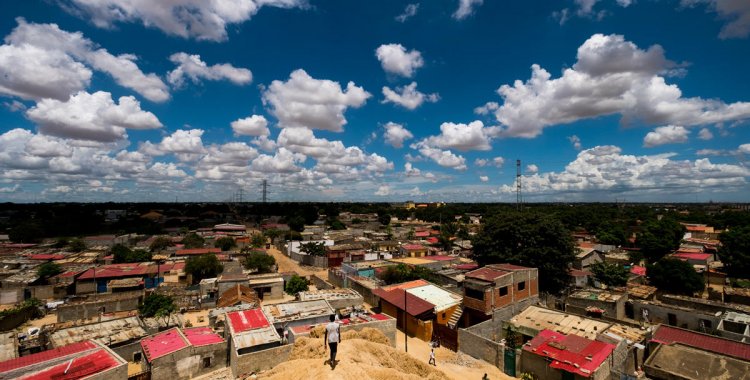The preliminary results of the "Socioeconomic Survey on the Impact of covid-19 in Angola's Informal Settlements," conducted by the non-governmental organization Development Workshop (DW) Angola between June and November 2020, were presented in Luanda.
Household and household characterization, employment and household income, household knowledge of covid-19 and health issues constitute the four axes of the research based on a telephone survey of 1648 people in the provinces of Luanda, Huambo, Uíje and Benguela.
According to the study, in the musseques of Angola two-room dwellings house an average of six people, with the province of Huambo "having a significantly higher housing density, that is, with a higher rate compared to the capital."
"We are talking about more or less 7.6 people living, on average, under the same roof at the same time, which has to do, perhaps, with birth rates," said João Domingos, manager of urban governance and research at DW Angola, during the presentation of the survey.
The remaining provinces described in the survey have an average rate of six people per household.
As for access to water, the study says that only a third of the survey participants have a home connection to the public water network, and of these "almost half are in the country's capital and the rest buy water in cisterns".
The vast majority, 90 percent of households, use a toilet to meet their needs. A third (33 percent), says the study, "have a toilet with a connection to the public sewer.
The study notes that the pandemic has had a negative impact on household income "with 60 percent acknowledging a marked reduction in their income."
"Another element is food security, as more than half of those interviewed reported struggling to put food on the table in 2020," the DW Angola official pointed out.
In terms of employability, the study notes, the "majority are self-employed (probably in the informal market). Only 3 percent lost their jobs during the pandemic.
The "knowledge" of prevention measures against covid-19 in informal settlements "is quite high" and 93 percent of the respondents recognize that the best prevention measure "is the so-called social distancing and always washing hands with soap and water."
Despite the knowledge about prevention measures, says the survey, "misinformation about the pandemic is present in households."
In the universe of the surveyed population, "only 1.3 percent of households registered a case of covid-19 and 2.6 percent of households had deaths with covid-19 symptoms."
Malaria (21 percent), hypertension (13 percent), and asthma (3 percent) are the most frequent diseases at the household level in the settlements.
Improving access to water and sanitation, distributing food and cash aid in the short term, encouraging sustainable job creation, progressively formalizing the informal market, expanding testing and vaccination against covid-19 are among the research recommendations.
The study, presented during a workshop to launch the Participatory Programme for the Improvement of Informal Settlements (PSUP) in Angola, was supported by the European Union (EU) and the United Nations Human Settlements Programme (UN-Habitat).







